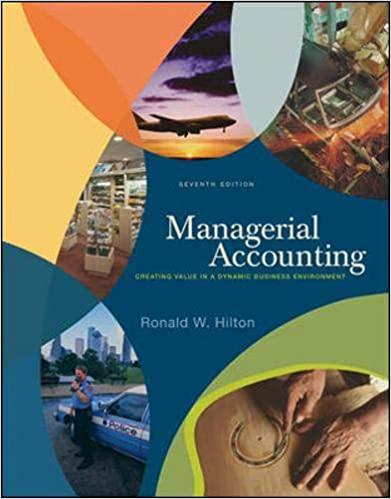Question
Which event triggered the formation of the Federal Reserve? A. War of 1812 B. Assassination of President McKinley C. 1907 financial panic D. Civil War
Which event triggered the formation of the Federal Reserve?
| A. | War of 1812 | |
| B. | Assassination of President McKinley | |
| C. | 1907 financial panic | |
| D. | Civil War (1861-1865) |
QUESTION 3
Are all commercial banks members of the Federal Reserve system?
| A. | Yes | |
| B. | No |
QUESTION 4
Which of the following is a major difference between the US Federal Reserve system and the European Central Bank?
| A. | Federal Reserve Bank budgets are centrally controlled | |
| B. | Monetary operations are centrally controlled by the Fed | |
| C. | ECB does not supervise or regulate financial institutions | |
| D. | All of the above |
QUESTION 5
Suppose you have a$10bill in your pocket. How is this money counted in the Fed balance sheet?
| A. | Asset | |
| B. | Liability | |
| C. | The money does not appear on the Fed balance sheet |
QUESTION 6
What happens to the monetary base when the Fed buys Treasury bonds?
| A. | Bank reserves do not change | |
| B. | Bank reserves increase | |
| C. | Bank reserves decline |
QUESTION 7
Suppose a major hurricane threatens the Gulf of Mexico coast of the southern US, and individuals withdraw large amounts of cash from their checking accounts in anticipation of electrical outages and disruptions in banking services. What impact does this event have on the banking system?
| A. | Monetary base and reserves increase | |
| B. | Monetary base unchanged and reserves decline | |
| C. | Monetary base and reserves decline | |
| D. | Monetary base increases and reserves decline |
QUESTION 8
What is float in the banking system?
| A. | Tendency for interest rates to rise over time | |
| B. | The term used to describe sales of Treasury bonds by the Fed | |
| C. | Temporary net increase in reserves due to differences in the timing of debits and credits | |
| D. | An illegal activity that is a form of bank fraud |
QUESTION 9
Suppose the Fed increases the required reserve ratio from 10%to 12%. What happens to the money supply?
| A. | Does not change | |
| B. | Increases | |
| C. | Declines |
QUESTION 10
What happens to the money supply as our currency holdings decline with the rise of electronic payments?
| A. | Money supply declines | |
| B. | Money supply does not change | |
| C. | Money supply increases |
Step by Step Solution
There are 3 Steps involved in it
Step: 1

Get Instant Access to Expert-Tailored Solutions
See step-by-step solutions with expert insights and AI powered tools for academic success
Step: 2

Step: 3

Ace Your Homework with AI
Get the answers you need in no time with our AI-driven, step-by-step assistance
Get Started


